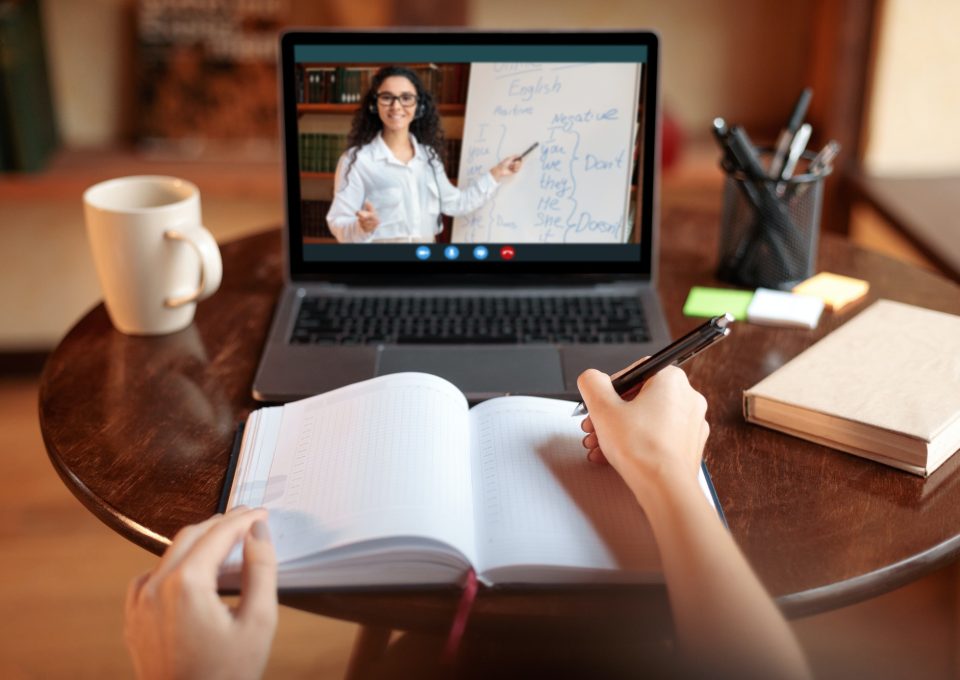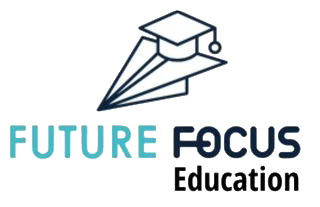Level A2 / English
- Home
- Level A2 / English
At the end of this level you will be able to:
By the end of this level, you will learn how to write an email/letter to inform or invite someone to an event. You will be able to describe yourself and others in detail, referring to appearance and character. You will be able to book a table and order food at a restaurant and discuss your likes and dislikes. Additionally, you will be able to give advice, talk about rules, and describe symptoms to a doctor if you are unwell. With these skills, you will have a linguistic level that will help you handle various situations in an English-speaking country effectively.
This course:
Takes place in the classroom or online
In groups and individually
Morning and afternoon
Certificate at the end of the course
Here’s a structured English language learning program for A2-level learners, spread across 30 sessions. This program aims to reinforce basic grammar, expand vocabulary, improve speaking and writing skills, and prepare learners for more practical communication in everyday situations.
Program
● ObjectiveReview of A1 concepts and introduction to simple present tense.
● Content:
Review basic greetings, introductions, and daily activities.
Introduction to the simple present tense for regular verbs.
○ Sentences:"I work in a bank." "She lives in London."
○ Questions:"Do you like pizza?" "Does she go to the gym?"
● ObjectiveTalk about daily routines using adverbs of frequency.
● Content:
○ Vocabulary: Wake up, have breakfast, go to work/school, etc.
○ Adverbs of frequency: always, usually, often, sometimes, never.
○ Sentence structure: "I always wake up early." "She sometimes goes jogging."
● Objective: Praktikimi i shprehjeve të kohës dhe forcimi i përdorimit të kohës së tashme të thjeshtë.
● Content:
○ Time expressions: In the morning, at night, on Monday, etc.
○ Questions:"What time do you get up?" "When do you go to bed?"
○ Practice: Describing a typical day using time expressions.
● Objective: Learn vocabulary related to places and prepositions of place.
● Content:
○ Vocabulary: Post office, library, supermarket, park, etc.
○ Prepositions of place: in, on, under, next to, between.
○ Sentence structure: "The bank is next to the supermarket." "The cat is under the table."
● Objective: Express ability and inability using "can" and "can't."
● Content:
○ Vocabulary: Swim, drive, play the guitar, speak French, etc.
○ Sentences:"I can swim." "She can’t speak Spanish."
○ Questions:"Can you play football?" "What can you do?"
● Objective: Introduction to the simple past tense for regular verbs.
● Content:
○ Vocabulary: Walked, played, studied, watched, etc.
○ Sentence structure: "I visited Paris last year." "She watched a movie yesterday."
○ Practice: Talking about past events using the simple past.
● Objective: Learn to form negative sentences in the simple past.
● Content:
○ Use of “didn’t” in the past tense.
○ Sentence structure: "I didn’t go to the party." "They didn’t play tennis."
○ Practice: "Can you play football?" "What can you do?"
● Objective: Form questions in the simple past tense.
● Content:
○ Questions with “Did”: "Did you watch TV yesterday?" "Did they travel last summer?"
○Yes/no questions and WH-questions.
○ Practice: Asking and answering questions about past activities.
● Objective: Talk about food preferences and ordering food.
● Content:
○ Vocabulary: Breakfast, lunch, dinner, snack, fruit, vegetables, etc.
○ Sentence structure: "I like pizza." "She prefers tea to coffee."
○ Practice: Ordering food at a restaurant or cafe.
● Objective: Learn vocabulary and expressions for shopping.
● Content:
○ Vocabulary: Clothes, price, sale, size, money, etc.
○ Questions:: "How much is this?" "What size are you?"
○ Role play: Shopping for clothes or groceries.
● Objective: Discuss the weather and seasons
● Content:
○ Vocabulary: Sunny, rainy, cold, hot, windy, etc.
○ Seasons: Spring, summer, autumn, winter.
○ Sentence structure: "It’s sunny today." "I love summer because it’s warm."
○ Practice: Talking about the weather in different seasons.
● Objective: Express future plans using "going to."
● Content:
○ Structure: "I’m going to visit London." "She’s going to study French."
○ Questions:: "What are you going to do this weekend?" "Are you going to watch the movie?"
○ Practice: Talking about plans for the future.
● Objective: Learn vocabulary related to travel and transportation.
● Content:
○ Vocabulary: Airport, bus, train, ticket, suitcase, etc.
○ Sentences:: "I’m flying to New York." "She’s taking the bus."
○ Practice: Talking about travel plans and transportation.
● Objective: Discuss health, fitness, and well-being.
● Content:
○ Vocabulary: Exercise, gym, healthy, diet, headache, cold, etc.
○ Sentence structure: "I go to the gym every day." "He feels sick."
○ Practice: Talking about health habits and fitness routines.
Midterm Test
● Objective: Learn how to make invitations and suggestions.
● Content:
○ Vocabulary: Party, dinner, movie, concert, etc.
○ Expressions: "Let’s go to the cinema." "Do you want to come to my party?"
○ Role play: Making and responding to invitations.
● Objective: Use "have got" to talk about possessions.
● Content:
○ Structure: "I’ve got a car." "She’s got two brothers."
○ Questions: "Have you got a pen?" "What have you got in your bag?"
○ Practice: Talking about possessions.
● Objective: Introduce comparatives and superlatives.
● Content:
○ Vocabulary: Bigger, smaller, better, more beautiful, etc.
○ Structure: "This book is more interesting than that one." "She is the tallest in the class."
○ Practice: Comparing objects, people, and places.
● Objective: Describe people's appearance and personality.
● Content:
○ Vocabulary: Tall, short, kind, funny, serious, etc.
○ Sentences: "She is very friendly." "He’s tall and slim."
○ Practice: Describing people you know.
● Objective: Learn how to ask for and give directions.
● Content:
○ Vocabulary: Street, corner, right, left, straight ahead, etc.
○ Sentences: "Go straight ahead." "Turn left at the traffic lights."
○ Practice: Asking for and giving directions in the city.
● Objective: Use "would like" for making polite requests.
● Content:
○ Structure: "I would like a cup of coffee." "Would you like to come to my house?"
○ Questions: "Would you like some help?" "What would you like to do?"
○ Practice: Making polite requests and offering things.
● Objective: Learn vocabulary and expressions for visiting the doctor.
● Content:
○ Vocabulary: Headache, cough, fever, medicine, etc.
○ Sentence structure: "I have a headache." "She needs some medicine."
○ Role play: Visiting the doctor.
● Objective: Learn to use the past continuous tense.
● Content:
○ Structure: "I was studying when you called." "She was reading a book."
○ Practice: Describing actions in progress in the past.
○ Questions: "What were you doing at 8 p.m.?"
● Objective: Talk about events, holidays, and festivals.
● Content:
○ Vocabulary: Christmas, birthday, wedding, festival, etc.
○ Sentence structure: "We celebrate Christmas in December." "My birthday is in May."
○ Practice: Talking about favorite events and traditions.
● Objective: Review and practice simple present, past, and future tenses.
● Content:
○ Practice: A variety of exercises covering all tenses learned so far.
○ Focus on sentence formation, questions, and negative sentences.
● Objective: Learn how to make complaints and offer apologies.
● Content:
○ Vocabulary: Problem, mistake, sorry, fix, etc.
○ Sentences: "I’m sorry for the inconvenience." "I have a problem with my order."
○ Role play: Making and responding to complaints.
● Objective: Write a basic informal letter or email.
● Content:
○ Structure: Greeting, body, closing.
○ Topics: Invite a friend, tell about a trip, etc.
○ Practice: Writing a letter or email.
● Objective: Learn vocabulary related to jobs and workplaces.
● Content:
○ Vocabulary: Job, boss, office, work hours, etc.
○ Sentence structure: "I work as a teacher." "She’s a doctor."
○ Practice: Talking about your job or someone else’s job.
● Objective: Review the topics covered and focus on conversation.
● Content:
○ Review vocabulary and grammar topics.
○ Practice conversation on various topics: daily routines, hobbies, travel, etc.
○ Group activity: Role play, interviews, and real-life scenarios.
Students are tested for their knowledge gained during the course and their results are reflected on the Certificate.
This 30-session program for A2 learners helps reinforce key grammar points and builds vocabulary for common everyday situations. It also provides plenty of opportunities for speaking and writing practice to improve fluency and confidence.

This course includes:
- 30 Leksione
- It takes place in the classroom or online
- Morning and afternoon
- Certificate at the end of the course
Do you have any questions?
Please contact us in the forms below and our staff will provide you with the necessary information.
